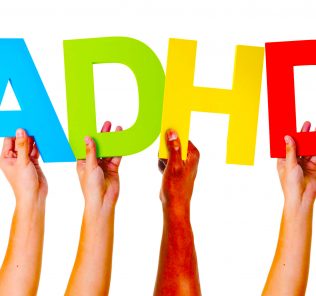Could screentime be shattering your child’s attention span? New statistics from The Priory Wellbeing Centre in Dubai reveal that UAE students are suffering with everything from anxiety to ADHD-like problems caused by social media use and ongoing fallout from the pandemic.
The clinic found that anxiety was the main reason for treatment among 10-19 year-olds (25%) in the UAE over the past 12 months, followed by depression (16%). For those UAE children under 10 years of age, nearly a quarter (23%) received psychological treatment related to emotional and/or behavioural problems due to attention-deficit hyperactivity disorder (ADHD).
Mohamad Naamani and Anthony Nhalpo, clinical psychologists at the centre, report seeing an increase in younger patients suffering from low self-esteem and social anxiety. In particular, this rise has affected 13-18 year-olds, with many struggling with adjustment difficulties and diminished interpersonal skills.
Mohamad Naamani told SchoolsCompared:
“We have experienced a clear increase among those aged between 13 and 18 suffering from a myriad of mental health issues over the last 12 months, but in particular anxiety and poor self-esteem. Mental health issues among teenagers are extremely common as they try to navigate their journey to adulthood, while also trying to manage fluctuating hormone levels.”
“While much of this is normal, it’s also clear that the after-effects of the pandemic are still rumbling on. Its social impact was profound among this age group, and the adjustment to pre-Covid routines has been a real challenge for many as they unlearn habits which started during lockdown.”
“A lack of social support and connection and increased loneliness greatly disrupted a key stage of their social and emotional development. As a result, many were far less confident in their social and communication skills following the return to face-to-face learning and livelier social situations. No longer able to hide behind a screen, they have developed a real fear of being scrutinised. This has greatly affected their personal self-image and, in many cases, diminished their self-esteem.”
The link between screentime and ADHD-like symptoms
Dr Shweta Misra, also a clinical psychologist from the Dubai centre, highlights the increase in screen dependency and attention problems:
“During the pandemic there was, understandably, a significant emphasis on online learning. In many cases, learning patterns have still not returned to how they were before and, over time, this has affected their attention levels.”
The Priory team highlights how the changing ways in which young people receive and digest information is also fracturing attention spans. For example, social media platforms have driven the popularity of reels and short videos which tend to last no longer than 20 seconds.
The sheer volume of information being thrown at us in a 24/7 news cycle is also taking its toll: a 2019 study from researchers at the Technical University of Denmark suggests the collective global attention span is narrowing due to the amount of information that is presented to the public.
“Content is increasing in volume, which exhausts our attention and our urge for ‘newness’ causes us to collectively switch between topics more regularly,” said Philipp Lorenz-Spreen of Max Planck Institute for Human Development, which also participated in the study.
Social media sites such as TikTok, which are particularly popular among young people, appeal to our narrowing attention spans: when it first launched the videos had a 15-second duration cap, although this has now increased to a maximum length of 10 minutes.
And there’s evidence that links high levels of screentime with ADHD in children who did not previously have it: a 2018 report, published in JAMA, studied teenagers aged 15 and 16 years at a baseline without symptoms of ADHD and found a “significant association” between high-frequency digital media use— “several times per day”—and the presence of ADHD symptoms after a two-year follow-up. This is supported by a 2021 study of 192 adolescents aged between 8-16, which found that problematic social media usage and internet addiction might be exacerbating symptoms seen in ADHD.
Ozan Akbas, clinical psychologist at the Centre, says:
“These videos and reels may well be decreasing the attention spans of students, although more studies are needed. But, it’s fair to say that the ever-increasing amount of fast-paced online stimuli that young people are constantly exposed to will naturally accelerate the growing cases of attention problems and can increase the symptoms in those who have an existing developmental disorder.”
Is screentime affecting your child’s academic performance?
Shortened attention spans and mental health problems are quite likely to have an impact on your child’s academic performance, says Priory Clinical Psychologist Ozan Akbas:
“It can interfere with their motivation for learning, which is considered one of the core indicator of learning success.”
Clinical Psychologist Mohamad Naamani agrees:
“Anxiety, depression, and inattention are often mental roadblocks to achievement and success. All three issues are often linked to one another, with some being the primary problem that may be exacerbating the other.
“All three issues affect one’s mood, focus, decision making, information processing, time management, social interactions, communication, among other processes which, in turn, impedes learning engagement in students.”
Short-form videos and reels with highly addictive infinite-scroll algorithms, as seen in social media sites such as TikTok, Instagram and Facebook, can be particularly problematic, says Anthony Nhlapo:
“The videos have an impact on attentional span as they increase distractibility,
and, in turn, short attentional span will affect the following:
– Poor performance at school
– Inability to complete tasks such as homework.
– Missing important information and details.”
With depression and anxiety in particular, the majority of students’ mental capacity is used to create and process worrisome thoughts and negative thinking patterns, which can be very exhausting and distracting, adds Mohamad Naamani:
“As such, it is essential that teachers and parents who notice a decline in students’ performance keep a lookout for warning signs that suggest that the students might be struggling with personal challenges and consult with a mental health professional to address their needs.”
Anthony Nhlapo believes trust can play a key part in preventing many young people from seeking help:
“The key to treating mental health conditions and gaining the best possible long-term outcomes is about seeking help – whether from friends, family or mental health professionals – as early as possible. But many of my younger patients display a lack of trust where parents and adults are concerned. They either believe their emotional needs don’t matter, or that they won’t be taken seriously. Despite major strides globally in trying to remove the stigma surrounding mental ill health, it is also clear among my patients that this still persists, and can be a further obstacle to them seeking help.”
Dr Shweta echoes this:
“Any attempt to seek help from a mental health expert or even a school counsellor is often overshadowed by the fact children and young people fear they may encounter negative stereotyping, discrimination or devaluation from their peers.”
Do children have too much screentime at school?
While screentime became the sole vehicle for schooling during the pandemic, many schools are now deliberately choosing to move away from what many see as an over-reliance on screens and focus once again on the solidity of pen and paper.
Primary Principal of GEMS World Academy, Kristen Murphy, told Which School Advisor:
“Due to distance learning, our policy regarding access levels for the iPad were lowered to begin for those in Grade 1. For the 2022-23 academic year, we have agreed that we will begin to go back to the pre-Covid days of minimal screen time and no devices for younger grades.”
Meanwhile newly opened Durham Dubai School has always firmly believed in the importance of traditional learning methods – the value of nurturing essential skills to build a solid foundation – and that screen time should be closely monitored.
Mark Atkins, Principal of Durham School Dubai, said:
“Of course technology has its place in schools and can have a huge positive impact when used effectively. However, I believe there is still a place for work in books, for neat handwriting and for high quality written teacher feedback to every piece of work forming a lasting record of a child’s educational journey.”
Signs your child could be struggling
In the wake of Children’s Mental Health Week (6-12 Feb), the Priory Wellbeing Centre is encouraging more teenagers and young people to speak out and seek help if they are struggling with mental ill health. “Research shows that one in four adults and one in ten children will suffer from mental ill health[i], so it’s crucial they understand they are not alone,” adds Anthony.
The Priory Team share some common signs and symptoms that parents and caregivers should be aware of which could point to a mental health issue:
- General lack of interest in school-related work and activities
- Frequent complaints from teachers / changes in academic performance
- Sudden social and emotional withdrawal
- Persistent low mood, sadness or constant anxiety
- Negative self-talk and low self-confidence
- Aggressive and destructive behaviour
- Outbursts or extreme irritability
- Frequent headaches or stomach-aches
- Poor eating and sleeping patterns
- How to help your child deal with a mental health problem
How parents and schools can help a child with a mental health issue
Key recommendations to help children and young people cope with mental ill health, include:
- Improve parent-child relationship – Honest and open communication with your child is the foundation to managing their mental health. Ensure they know they have a ‘safe’ space to be open about issues that may be troubling them. Be there to support them emotionally, verbally and physically. Even the most ‘grown-up’ and independent teenager needs a hug from time to time.
- Nurture friendships – Encourage them to engage in regular social activities with friends. This is key for their development and helps to promote social wellbeing and interpersonal effectiveness. Participating in an activity together tends to lead to enjoyment and laughter, and helps to take their focus away from their worries.
- Equip them with coping strategies – This can help to manage their stress and anxiety. For example, guided meditation and mindfulness apps, deep breathing or grounding exercises. These can help them to refocus and remain calm.
- Develop a ‘worry box’ – Whether it’s worrying about exams, college places, or job placements, encourage your child to help process their feelings by getting things off their chest and writing their worries down. Accept and validate that they have fears and worries, like adults, but help them find ways to shift focus and not allow the fear and worry to define their thoughts.
- Limit exposure to social media – It can be hard to set a limit but create a structure which incorporates electronic time for school, time for communication with friends and time for exercise and outdoor activity. This is key to achieving healthy results and maintaining balance.
- Get outdoors – Exercise and getting outdoors helps to release ‘feel good’ chemicals in our brain, crucial for maintaining positive mental health.
- Finally, the team is encouraging schools in the UAE to help further improve the narrative around mental ill health. Dr Shweta says: “Students spend a vast majority of their waking hours in school and as such, the school education system is a key lever to creating broad generational change in how we all conceptualise and experience wellbeing. The key ingredient is teaching our children to be wellbeing literate, as it is considered one of the key mechanisms for ‘thriving’ in life. Positive wellbeing should be viewed as an essential element of their school years.”
“Wellbeing literacy is defined as a capability to comprehend and compose wellbeing language, across contexts, with the intention of using such language to maintain or improve the wellbeing of oneself, or others or the world’. To promote this, schools can consider developing effective in-school mental health programs run by counsellors or external sources (e.g., clinical psychologists, psychiatrists, etc.).”
© SchoolsCompared.com. A WhichMedia Group publication. 2023 – 2024. All rights reserved.





























































Leave a Response